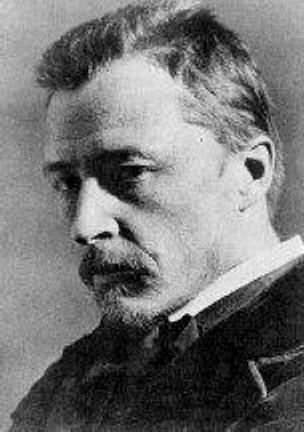
Hugo Philipp Jacob Wolf was an Austrian composer of Slovene origin, particularly noted for his art songs, or Lieder. He brought to this form a concentrated expressive intensity which was unique in late Romantic music, somewhat related to that of the Second Viennese School in concision but diverging greatly in technique.

Paul-Marie Verlaine was a French poet associated with the Symbolist movement and the Decadent movement. He is considered one of the greatest representatives of the fin de siècle in international and French poetry.

Paul Johann Ludwig von Heyse was a distinguished German writer and translator. A member of two important literary societies, the Tunnel über der Spree in Berlin and Die Krokodile in Munich, he wrote novels, poetry, 177 short stories, and about sixty dramas. The sum of Heyse's many and varied productions made him a dominant figure among German men of letters. He was awarded the 1910 Nobel Prize in Literature "as a tribute to the consummate artistry, permeated with idealism, which he has demonstrated during his long productive career as a lyric poet, dramatist, novelist and writer of world-renowned short stories." Wirsen, one of the Nobel judges, said that "Germany has not had a greater literary genius since Goethe." Heyse is the fifth oldest laureate in literature, after Alice Munro, Jaroslav Seifert, Theodor Mommsen and Doris Lessing.

Adalbert Stifter was an Austrian writer, poet, painter, and pedagogue. He was notable for the vivid natural landscapes depicted in his writing and has long been popular in the German-speaking world, while remaining almost entirely unknown to English readers.

Eduard Friedrich Mörike was a German Lutheran pastor who was also a Romantic poet and writer of novellas and novels. Many of his poems were set to music and became established folk songs, while others were used by composers Hugo Wolf and Ignaz Lachner in their symphonic works.
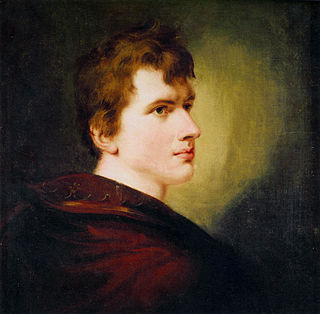
Carl Joachim Friedrich Ludwig von Arnim, better known as Achim von Arnim, was a German poet, novelist, and together with Clemens Brentano and Joseph von Eichendorff, a leading figure of German Romanticism.

Bettina von Arnim, born Elisabeth Catharina Ludovica Magdalena Brentano, was a German writer and novelist.
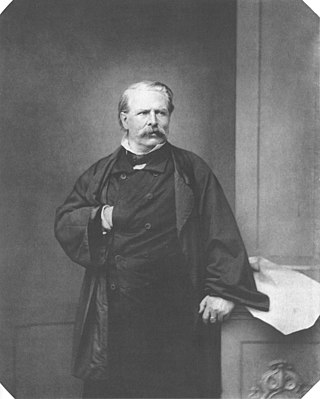
Moritz von Schwind was an Austrian painter, born in Vienna. Schwind's genius was lyrical—he drew inspiration from chivalry, folklore, and the songs of the people. Schwind died in Pöcking in Bavaria, and was buried in the Alter Südfriedhof in Munich.

The Biedermeier period was an era in Central Europe between 1815 and 1848 during which the middle class grew in number and the arts appealed to common sensibilities. Biedermeier began with the Congress of Vienna at the end of the Napoleonic Wars in 1815 and ended with the onset of the Revolutions of 1848.
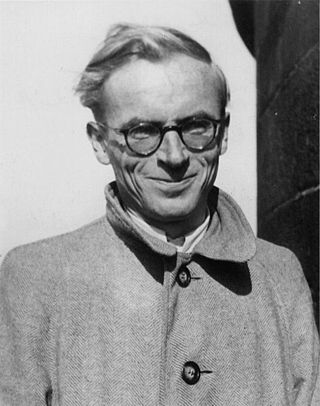
August Hugo Distler was a German organist, choral conductor, teacher and composer.
Literature of the 19th century refers to world literature produced during the 19th century. The range of years is, for the purpose of this article, literature written from (roughly) 1799 to 1900. Many of the developments in literature in this period parallel changes in the visual arts and other aspects of 19th-century culture.
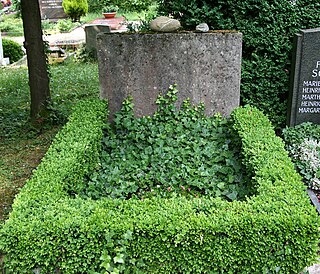
Victor Mordechai Goldschmidt was a German mineralogist, natural philosopher, and art collector.
"Elfenlied" is the conventional title of a 1780 poem by Goethe, and of a later poem by Eduard Mörike.
The Klindworth-Scharwenka Conservatory was a music institute in Berlin, established in 1893, which for decades was one of the most internationally renowned schools of music. It was formed from the existing schools of music of Xaver Scharwenka and Karl Klindworth, the Scharwenka-Konservatorium and the Klindworth-Musikschule. The former, with his brother Phillipp, consolidated the two.
Felix Wolfes was an American educator, conductor and composer.
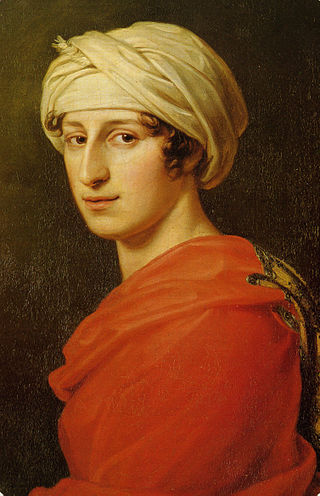
Antonie Brentano, born Johanna Antonie Josefa Edle von Birkenstock, known as Toni, was a philanthropist, art collector, arts patron, and close friend of Beethoven, being the dedicatee of his "Diabelli" variations.
Hannah Mathilde von Rothschild was a German-Jewish baroness, composer and patron.
Nikolaus Freiherr von Krufft was an Austrian composer and civil servant.
David Luke (1921–2005) was a scholar of German literature at Christ Church, Oxford.
Jacques Bunimowitsch (1859-ca. 1915?; Yiddish: יעקב בונעמאוויטש; romanized: Yakov Bunimovitsh; Lithuanian: Jokūbas Bunimovičius) was a Lithuanian Jewish portrait artist who flourished in Frankfurt during the final two decades of the 19th century.












